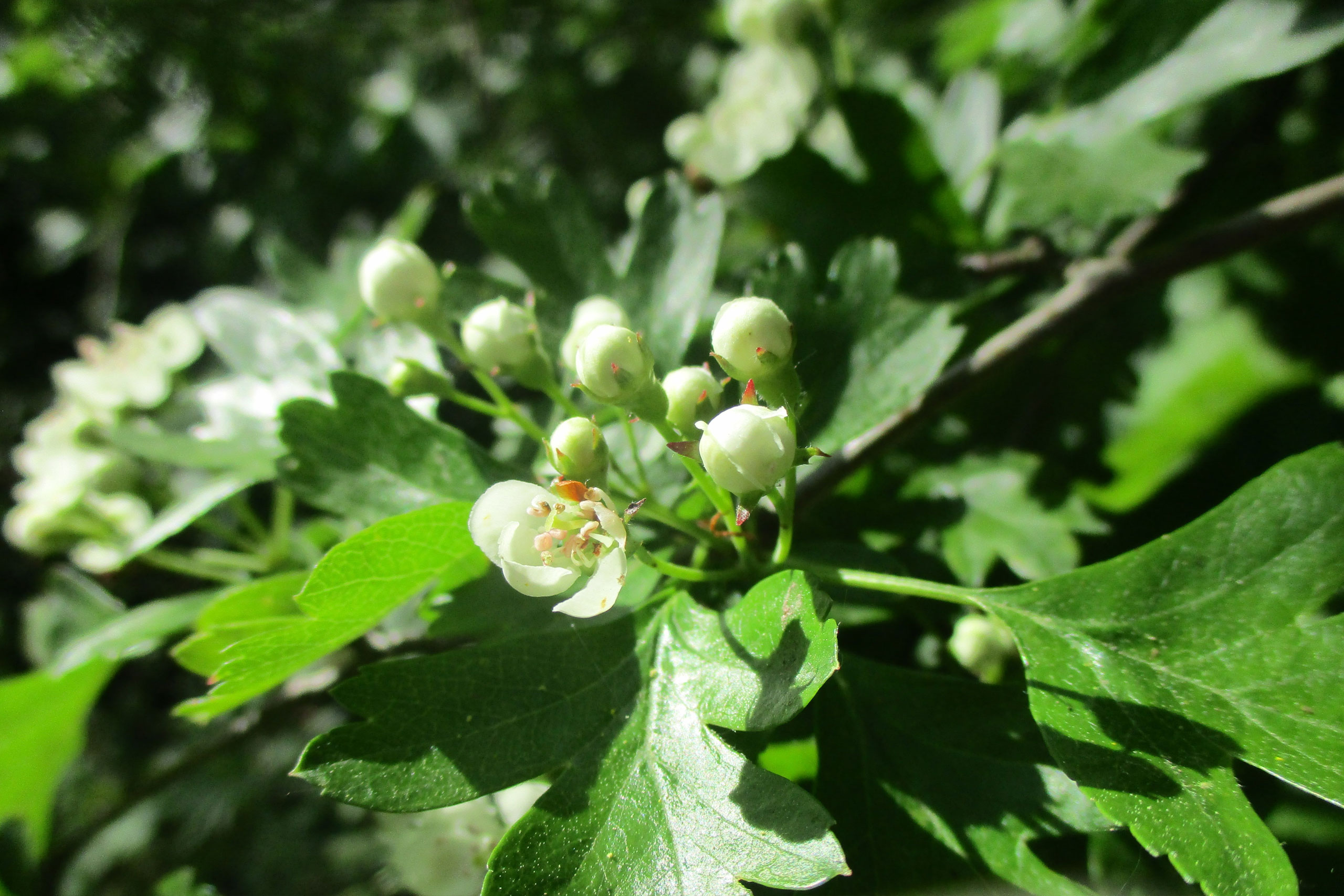With its delicate white blossoms and ruby-red berries, Crataegus—commonly known as hawthorn—has long been a symbol of love, protection, and heart-centered healing. In herbal medicine, it is one of our most trusted allies for supporting cardiovascular health, balancing emotional rhythms, and gently restoring strength to a weary heart.
Whether used for physical or emotional concerns, hawthorn brings resilience, nourishment, and calm to the centre of our being.
A Long History of Heart Wisdom
Hawthorn has a rich European folk history, both as a boundary marker in the hedgerow and as a remedy for ailments of the heart. It was traditionally used for palpitations, angina, and emotional distress—especially grief. Nicholas Culpeper praised it as a remedy for “inward torments of the heart.”
Today, it remains a cornerstone of herbal support for the heart and circulation, with growing recognition in modern cardiology.
Traditional and Modern Uses
All parts of Crataegus—leaf, flower, and berry—have medicinal value and are often used together in formulas:
- Cardiovascular tonic: Hawthorn improves circulation to the heart muscle, enhances contractility, and supports recovery after cardiac events. It is used in the management of mild to moderate congestive heart failure (stages I–II), palpitations, and heart fatigue.
- Blood pressure and vascular health: Hawthorn helps regulate blood pressure—particularly where there is emotional tension or stress-related hypertension. It also supports venous tone and capillary strength, making it useful in varicose veins and peripheral circulation issues.
- Emotional balance: As a gentle nervine, hawthorn supports those experiencing anxiety, heartbreak, or grief—especially when accompanied by a sensation of pressure or fluttering in the chest.
- Metabolic and menopausal support: Hawthorn may assist in managing cholesterol and blood sugar levels and is particularly useful in supporting cardiovascular health in postmenopausal women.
What the Research Says
Modern studies support hawthorn’s historical reputation:
- Cardiotonic and hypotensive effects: Clinical trials have demonstrated hawthorn’s ability to reduce blood pressure and improve exercise tolerance in people with early-stage heart failure. Flavonoids and oligomeric procyanidins (OPCs) enhance coronary blood flow and oxygenation.
- Antioxidant protection: Hawthorn is rich in compounds that protect against oxidative damage, reduce inflammation, and stabilise collagen in blood vessels.
- Anti-arrhythmic and lipid-modulating properties: Preclinical studies show that hawthorn may reduce arrhythmias and help balance cholesterol and triglyceride levels.
- Anxiolytic activity: Animal and limited human studies have shown reductions in anxiety symptoms and stress-induced cardiovascular responses.
Safety Considerations
Crataegus is safe for long-term use and is generally well tolerated:
- Interactions: Caution is advised if used alongside beta blockers, digoxin, or other cardiac medications, due to possible synergistic effects. A collaborative approach with prescribing physicians is advised.
- Pregnancy and lactation: While not contraindicated, it is best used under professional supervision during these times.
As with many deep-acting herbs, consistency over time brings the best results.
In Practice
At Quantum Apotheca, we often work with Crataegus in those navigating physical or emotional challenges of the heart. Whether someone is recovering from illness, processing grief, or managing long-term cardiovascular conditions, hawthorn offers steady, subtle support—restoring tone, improving flow, and reminding us to soften where we hold tension.
This is a plant that speaks the language of the heart—quietly, wisely, and with great care.

